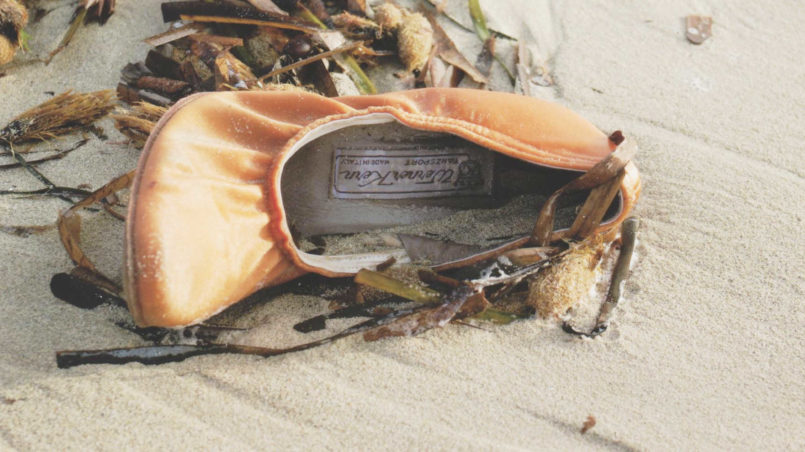Before You Judge Someone, Walk a Mile in their Shoes

There are many ways to fail in life. We all but rejoice in watching our fellow humans hit the wall and, instead of being moved to help them, we only feel distance and coldness – if, indeed we don’t enjoy their misfortune.
Not that the general symbiosis present in (still existing) Stone Age communities can be called the absolute ideal, since the limits of tolerated behavior are very tight there, but this form of indifference would be inconceivable for them. If one is sick, then it is the task of the whole village to make them healthy again. If a hut falls, then repair is a task for all of them together. The anonymity of the city makes it difficult, of course, to provide help, because opening a door to a complete stranger in offerance of personal assistance is an unacceptable risk (which the inhabitants of our Stone Age village would not necessarily take either).
The concept of failure
Not only do broken lives unnecessarily cost a lot of money, reduce safety, and are painful for those affected – others also constantly suffer from this low-key fear of a complete crash in their lives. We do not take any risks for fear that a mistake could irrevocably bring down our carefully stacked house of cards.
Nevertheless, even when there is no outside pressure for immediate success, one can be hindered by internal turmoil. To be forbidden from making mistakes is a much more common childhood fate than one would believe – and as one can easily imagine, it stifles spirit and self-confidence. Development into a self-determined, confident adult is only possible if one learns to fall and rise again – with humor and a certain ease, instead of leaden seriousness and strict expectation on the part of adults.
Neurotic failure anxieties – how the inner compass of many children is set to failure
Next to the overlooked children, there are also those who have literally been exposed to psychological terror from the crib – usually in ways well-hidden from the outside world. They are the victims of parents with serious personality disorders who keep their entire environment on its toes with cruel and absurd intrigues. As psychological scapegoats and indispensable crutches of the unpredictable adults, these children learn early to ignore their own needs, to adjust their personality completely to the image desired by the parents and always to expect the worst. In adult life, however, this behavior is guaranteed to result in continued grief.
Even parents who are simply half children (of any physical age) can drive a sensitive child into a neurotic hell with their egoism and neediness, without ever realizing how helpless, lonely and overwhelmed their offspring is. After all, the same thing was done to them, so they do not see any wrong in it.
Before you judge someone, walk a mile in their shoes
Whether it is obesity, learning disabilities, an escalating separation or tragic circumstances like sexual abuse, a major accident, physical disabilities, death or severe illness of a family member … be it childhood experiences or deep tragedies in adult life from which a person does not manage to recover … whatever has happened, no-one likes to be the eternal loser. Nobody “just thinks too negatively“, or “has called their trouble into their own life,” as the esoterically touched like to chime. At least certainly not intentionally and willfully.
What to do?
It is true that there is a way out of just about every situation (or snare) if those helplessly facing their life’s tasks were only given a little help. Left to their own devices, at some point people can no longer find their way out if the course of their life and their thoughts has been derailed time and again. They have lost their sense of humor and the strength to pick themselves up again after the hundredth fall, and they are waiting for someone to reach out to them.
Creating a well-equipped institution for real new beginnings should, therefore, be one of our most important social tasks (and, really, a matter of course) – it would be an excellent investment both economically and for every individual’s sense of security. Failure should not be allowed to be someone’s fate!
Credits
| Image | Title | Author | License |
|---|---|---|---|
 |
Der Damenschuh | Patryk Kopaczynski | CC BY-SA 4.0 |

Please change “We ALL but rejoice…” to something else, hun. No, not true, not ALL of us rejoice in watching another human/living thing suffer or fail. Smh.
Thankfully you are right, it is most certainly not ALL people who rejoice in others’ misfortune. But then, that’s not what I was saying, either… in this turn of phrase, the “all” doesn’t allude to us, as in “we all” rejoice, it is we “all but” rejoice, meaning “we very nearly” rejoice. (As in: “I all but jumped when I saw that spider”). Of course this is still a generalization, which I deliberately use to express that this is not about singling out the bad guys and patting the good people’s shoulders (much as they could do with a bit of encouragement and praise every now and then). The problem of poisoned souls concerns us all, and as long as good people stand idly by and let it all happen, they are contributing to the world’s misery by inaction. We – yes, we all – must take responsibility for our collective growth, must call out the wrong and must no longer support the social acceptability of entitlement and glee, of greed and recklessness. Otherwise nothing can change, and I think it is a dangerous misconception that a lot of folks truly think that just being good or maybe attempting to magically send out positive vibes from the safety of their armchairs can help – nope, not without actions in the material world, it surely won’t. This is an essential point which I have completely failed to make thus far – so I’m very thankful to you for going through the trouble of pointing it out, Lew. Since you are the second person to be irritated by the use of “we”, I clearly need to adress this in an upcoming article. Will do, promise. Thanks again!